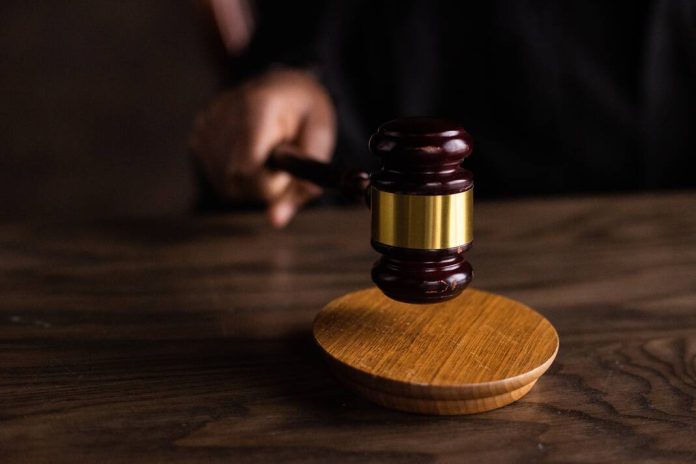The Indiana Court of Appeals heard arguments Tuesday on whether prohibiting individuals under indictment from carrying a handgun violates the Second Amendment.
Arthur Moore believes the state violated his right to bear arms when it charged him with a misdemeanor for unlawful carrying of a handgun while he had 0ther pending criminal charges.
However, an attorney for the state argued the statute used to convict Moore is consistent with the nation’s historical tradition of regulating firearms and was necessary to protect public safety.
Restricting rights based on allegations
At the center of Tuesday’s hearing was an Indiana statute that prohibits a person under indictment from carrying a handgun in public. Moore’s attorney, Joel Schumm, said the state restricted his client’s Second Amendment right based on allegations that he committed a crime, rather than a conviction.
Moore was involved in a car accident Dec. 19, 2022. According to court filings, police found a handgun, magazine and a loose round of ammunition in Moore’s car when they responded to the scene. At the time of the accident, Moore had already been charged with three separate Level 6 felonies for sexual battery, dealing marijuana and maintaining a common nuisance, but had not been convicted.
Prosecutors used the statute to charge and later convict Moore with a Class A misdemeanor carrying a one-year jail sentence.
Moore previously filed a motion to dismiss the handgun charge in May 2023, but a lower trial court denied this motion. He filed a notice of appeal in September 2023, and asked the appeals court to vacate his conviction.
Deputy Attorney General Ellen Meilaender said Indiana used judicially determined probable cause to charge Moore with having the handgun in this case. However, Court of Appeals Judge Paul Felix — who oversaw the hearing along with Judges Elizabeth Tavitas and Dana Kenworthy — pointed out the statute does not explicitly require judicial review and determination to restrict a person under indictment from carrying a handgun.
“We have a presumption of innocence until proven guilty,” Tavitas said. “How do you reconcile that?”
The three judges questioned Schumm about if his client sought a facial challenge — where the appellant argues the statute is unconstitutional under all circumstances — or an as-applied challenge, where the court could deem the statute’s application to Moore’s specific case unconstitutional. Schumm said he was seeking an as-applied challenge, but that there are still constitutional issues with the regulation.
“This is a very targeted challenge to a very broad provision,” Schumm said.
Historical tradition of regulating firearms
Meilaender said Indiana Code is consistent with founding-era “surety laws.” According to the South Carolina Law Review, colonial surety laws allowed an individual, who others think is likely to “breach the peace” while carrying a weapon, to appear in front of a justice of the peace. If the judge thought the individual was likely to breach the peace, they could require a surety bond. If the individual broke the requirements of the bond, they could face a jail sentence or other punishment.
However, Moore’s attorney argued this is not an accurate historical comparison for his conviction, since the surety laws allowed the accused person to simply post a bond to carry a handgun — an option not afforded under Indiana Code.
Schumm also said a pending felony charge does not automatically mean Moore is dangerous. He argued the state did not consider Moore’s individual case to determine his “dangerousness” — instead it relied on the blanket restriction — and that he has not been accused of violent conduct.
Meilaender pushed back on the argument that Moore’s crimes were “low-level felonies,” especially his Level 6 felony charge for sexual assault.
“These are violent crimes,” Meilaender said.
Schumm also said the code prevents Moore from carrying a handgun for self-defense in his car.
“Self-defense is so important to Hoosiers,” Schumm said.
Meilaender, on the other hand, said Indiana Code allows Moore to still have a handgun at home and does not prevent him from carrying other weapons, including a rifle, for self-defense.
There is no time limit for the Court of Appeals judges to issue a decision in the case.
By Mia Hilkowitz – The Indiana Capital Chronicle is an independent, not-for-profit news organization that covers state government, policy and elections.





